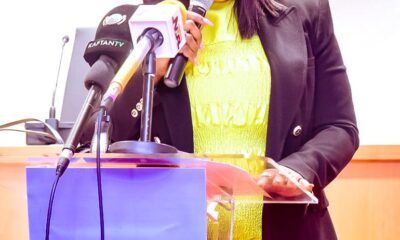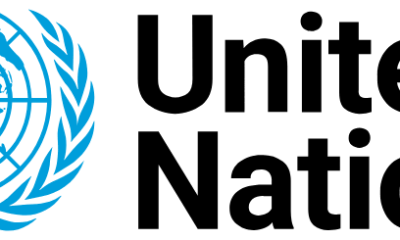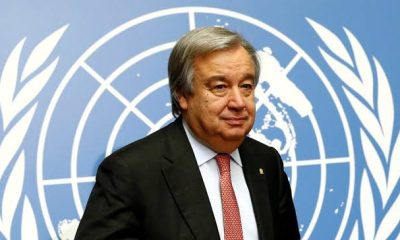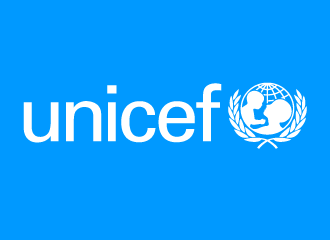Foreign
World entering “humanitarian doom loop”, UN official warns

The world is entering a “humanitarian doom loop” as Russia has not offered any free grain to the United Nations (UN) food relief agency so far, an official says.
The Deputy Executive Director of the World Food Programme (WFP), Carl Skau, said this at a press briefing on Friday at the UN headquarters in New York.
Skau said the Programme’s policy of buying supplies from Ukraine has been based on its competitive price and quality.
The WFP senior official said the collapse of the Black Sea Grain Initiative after Russia ended its engagement was “regrettable, to say the least.”
Under the initiative, WFP shipped more than 725,000 tons of grain, relieving hunger in some of the hardest hit corners of the world, including Afghanistan, the Horn of Africa and Yemen.
“WFP relied on Ukraine’s competitively priced, accessible and high-quality source of wheat,” Skau said, adding “in spite of the war and thanks to this accord, Ukraine remained WFP’s biggest supplier of wheat in 2022.”
“Losing this source now is of great concern, of course, as this is really about keeping the barn door open, just when millions are knocking on it.
“The world needs unimpeded access to major food supplies.”
Russian President Vladimir Putin reportedly promised to supply free grain to six African nations at a summit held earlier in the week, following the collapse of the Initiative.
Responding to a question, Skau said WFP had not been in talks with Russia about any free grain.
“We work in full cost recovery. So, we don’t service any country with in-kind. We have not been approached for any such discussion so far,” he added, noting that the UN agency buys grain where it is the cheapest and fastest to get to its beneficiaries.
Skau went on to note that some of the countries where the needs are the greatest are also “where funding for relief operations are declining, forcing humanitarians to reduce or cut assistance”.
“In WFP’s case, we have to make impossible trade-offs of prioritising assistance,” he said.
In addition, he said the UN agency was in the midst of “a crippling funding crisis, which is forcing it to scale back life-saving assistance right as acute hunger is hitting record levels.”
At least 38 of WFP’s 86 country operations have experienced cuts or are planning to scale down food assistance programmes.
These include operations in Afghanistan, Syria, Palestine, Yemen, and several countries in West Africa.
“Less funding means WFP is forced to stop assisting people who are only in the category of ‘crisis level’. This is so that we can save those who are literally starving —– the category of catastrophic hunger,” Skau said.
He explained that due to these cuts, people at “crisis levels” of hunger, would fall into “catastrophic levels”.
The official said this would further raise humanitarian needs in the future if the food security situation globally does not improve.
“We are entering a humanitarian doom loop —– where we save people who are starving, at the cost of millions of others falling closer into that same category.”
Around 345 million people are at an acute state of food insecurity, while hundreds of millions more are at risk of worsening hunger.
This is on the back of climate change impacts, natural disasters, food price increases, economic slowdown, and conflict and insecurity.
Skau called on world leaders to prioritise funding for humanitarian response, enhance coordination with aid organisations, and address the root causes of these crises.
Foreign
3 teens arrested in Germany for allegedly plotting terror attack
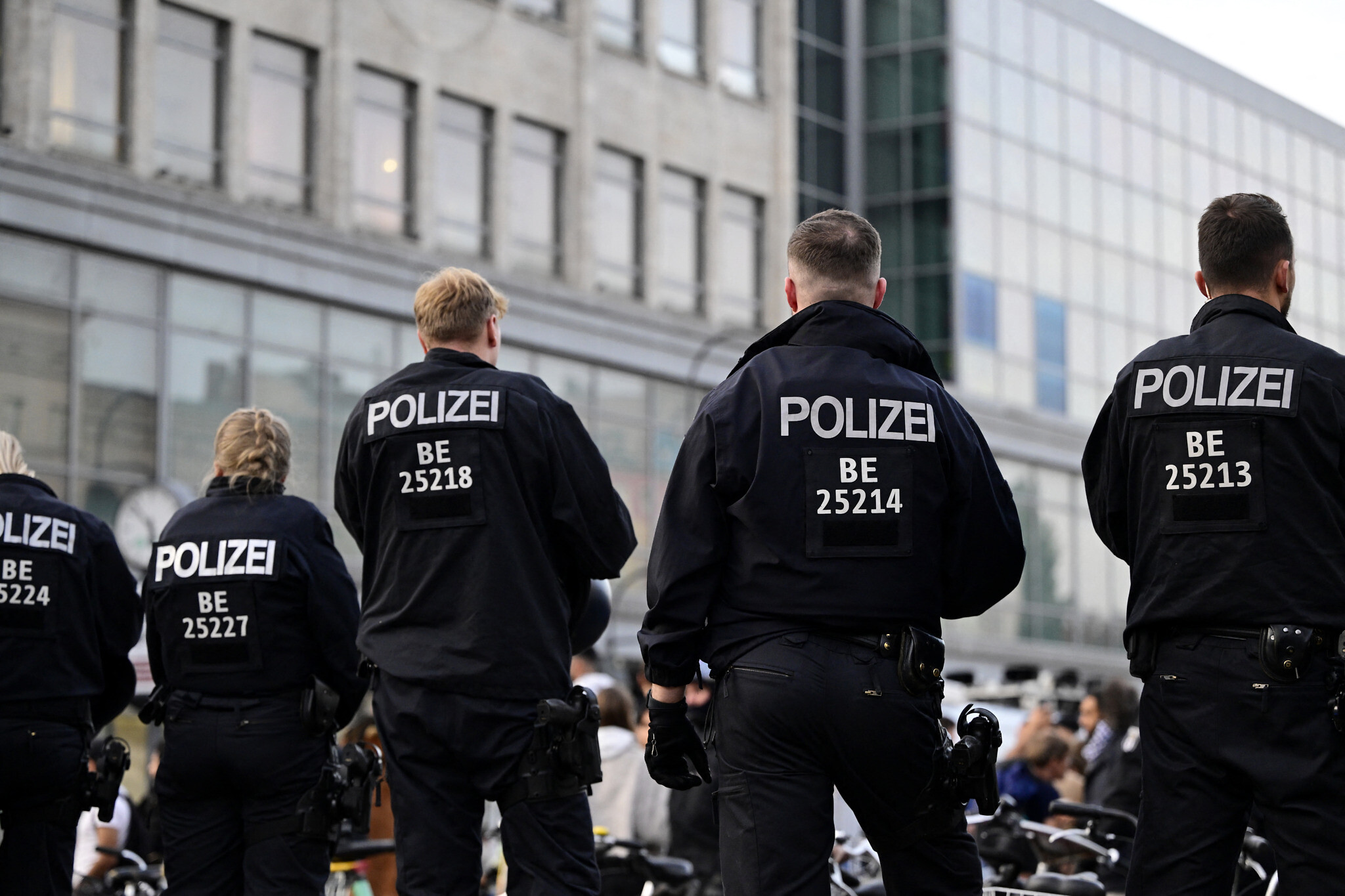
German authorities have arrested three teenagers aged 15 and 16 on suspicion of plotting a deadly Islamist terrorist attack in the western German state of North Rhine-Westphalia, prosecutors said on Friday.
The state’s Central Office for the Prosecution of Terrorism (ZenTer NRW) sought an arrest warrant for the teenagers over the Easter holiday.
They were suspected of plotting a terrorist attack in accordance with the aims and ideology of (extremist militia organisation) Islamic State.
The detained suspects are a 15-year-old girl from Dusseldorf, a 16-year-old girl from the Märkischer Kreis district and a 15-year-old boy from the Soest district, located about 100 kilometres to the east of Dusseldorf.
A fourth suspect has reportedly been identified in the south-western German state of Baden-Württemberg, and the local court there has issued an arrest warrant.
According to the investigators, the teenagers are accused of having agreed to commit murder and manslaughter.
This is in conjunction with the preparation of a serious act of violence endangering the state.
The presumption of innocence applied in all stages of the proceedings.
Security sources told newsmen that the young people had formed a chat group, but had not drawn up a concrete attack plan for a particular time and place.
However, sources said the cities of Dortmund, Dusseldorf and Cologne were discussed as targets, and attacks with knives and Molotov cocktails on people in churches or police officers in police stations had been considered.
The sources said authorities had also conducted searches as part of the investigation.
A machete and a dagger were seized in Dusseldorf, but no evidence of the construction of incendiary devices was discovered.
Sources said the father of the Dusseldorf suspect had already attracted attention from authorities in the past because he had allegedly collected donations for the Islamic State.
The investigators declined to reveal how the suspected terrorists were tracked down, but said that foreign intelligence agencies “did not play a role.”
Foreign
Putin Registers As Candidate For Russia’s Next Presidential Election
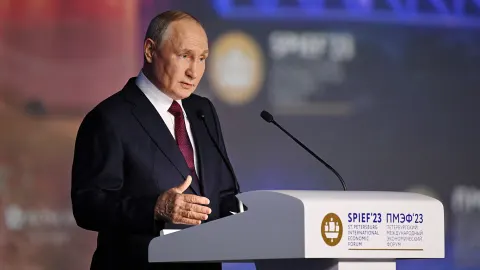
Russia on Monday officially recognised Vladimir Putin as a candidate for the presidential elections in March, a vote that he is all but certain to win.
The 71-year-old has led Russia since the turn of the century, winning four presidential ballots and briefly serving as prime minister in a system where opposition has become virtually non-existent.
The Central Election Commission said it had registered Putin, who nominated himself, as well as right-wing firebrand and Putin-loyalist Leonid Slutsky as candidates for the vote.
The election will be held over a three-day period from March 15 to 17, a move that Kremlin critics have argued makes guaranteeing transparency more difficult.
Following a controversial constitutional reform in 2020, Putin could stay in power until at least 2036.
Rights groups say that previous elections have been marred by irregularities and that independent observers are likely to be barred from monitoring the vote.
While Putin is not expected to face any real competition, liberal challenger Boris Nadezhdin has passed the threshold of signatures to be registered as a candidate.
However, it is still unclear if he will be allowed to run, and the Kremlin has said it does not consider him to be a serious rival.
-

 Business5 days ago
Business5 days agoSeplat Energy celebrates a decade of Dual Listing with Bell Ringing Ceremony at Nigerian Stock Exchange
-
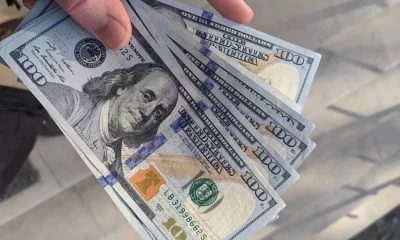
 News5 days ago
News5 days agoBDCs now buying dollar at ₦980 — ABCON President
-

 Metro5 days ago
Metro5 days agoOsun Poly Student, Olanrewaju Olatona killed by hit-and-run one-way driver
-
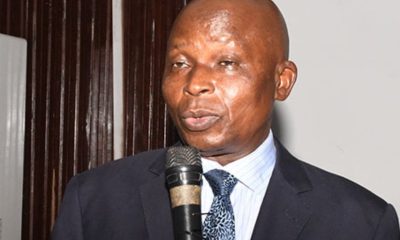
 Headline5 days ago
Headline5 days agoFagbemi warns against obstructing EFCC from performing its lawful duty
-
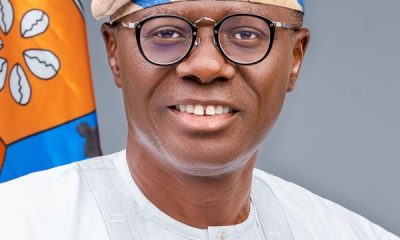
 News5 days ago
News5 days agoLASG’s maize palliative impactful, says poultry association chair
-

 News5 days ago
News5 days agoWoman killed while crossing road in Anambra

